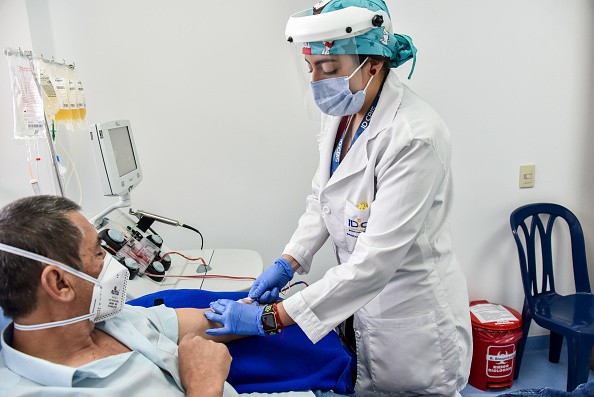COVID-19 Clinical Trials: The Difference Between Real and Fake
In the search for COVID-19 vaccines, there are thousands of clinical trials, and while many of the research studies are real, some are fake.

According to CBS 12, the Federal Trade Commission (FTC) warned that scammers had made fake websites and promotion material to impose legitimate researchers to take people's personal information and money. Any interested person in participating in COVID-19 clinical trials or other research studies must keep these six crucial things in mind, as per the FTC:
- Do not pay to join a clinical trial or to discover more about one. Real clinical trials will never ask for any payment.
- You can sign up at the COVID-19 Prevention Network, a site run by the National Institute of Allergy and Infectious Diseases at the National Institutes of Health, if you are interested in being a volunteer for a COVID-19 clinical trial.
- Never give any financial information such as a routing number or bank account. Real clinical trials offer to pay people, but you can ask to be paid by check rather than through a direct deposit. The amount you could get from being a volunteer varies based on the trial. However, it could range from $1,000 to $2,500, specifically when you reach Phase III of the vaccine trials.
- Before joining any clinical trials, conduct online research with the name of the clinical practice and the words "review," complaint," "or "scam." A legitimate clinical trial gathers data to determine if a candidate is ideal for the procedure. The participants' screening includes getting your name, contact information, age, race, gender, ethnicity, and various pre-existing conditions that would associate you with being a higher risk of COVID-19 mortality. But they should not ask you about your Social Security number during the screening.
- The National Institutes of Health (NIH) and the National Library of Medicine (NLM) maintain ClinicalTrials.Gov. It is a free searchable clinical studies database on a wide scope of diseases. You may use those databases to gather more information regarding the studies or if they need participants for a clinical trial and their contact information.
Read also: Deadly Ebola-like Virus Can Spread from Person-to-Person, CDC Reveals
How to read COVID-19 vaccine trials result
Once you get a real COVID-19 clinical trial, it is vital to understand the results, what is behind the announcements, what researchers need to know further, or what the news ddoesn'ttell us.
These things will help you identify good news, be observant of news reports, or delay judgment until you have other basis. Here are the questions you should give answers to yourself, according to Stuff:
1. Does it tell me the type of trial?
This pandemic season, the clinical trial results reports are generally the interim results of the late-stage trials, called Phase 3. This is when the vaccine is distributed to thousands of people and tested how well the vaccine works and safe.
2. Does the news reports mention safety?
It is extremely important to impose reports that the vaccine is safe as it is mainly tested on healthy volunteers. Data monitoring ccommittee'sjob is to receive and examine reports and look at interim results to determine if the trial should continue.
3. Does the report state how well the vaccine works?
The clinical trial results are measured at one or more time points as well as at the end of the trial. This is also a factor that the data monitoring committee should oversee.
The committee should assess the results and have given the trial a signal to proceed. Out of thousands of study participants, no phase 3 clinical trials have reported the full analysis yet, but it will happen after the next few weeks.
Read also: Arthritis Drug Decreases COVID-19 Deaths Among Elderly, Says New Study
Subscribe to Latin Post!
Sign up for our free newsletter for the Latest coverage!

















